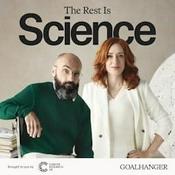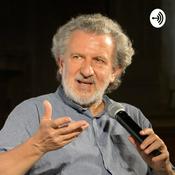1178 episodi

Jeff Roche, "The Conservative Frontier: Texas and the Origins of the New Right" (U Texas Press, 2025)
18/12/2025 | 1 h 20 min
American conservatism as we know it today is a West Texas export, argues College of Wooster professor Jeff Roche in The Conservative Frontier: Texas and the Origins of the New Right (U Texas Press, 2025). Tracing the roots of the state's conservative movement back to the giant cattle ranches and tycoons of the nineteenth century, Roche argues that you cannot separate the local and historical conditions in the West (and in West Texas specifically) from the "cowboy conservatism" of Barry Goldwater and Ronald Reagan. Full of fascinating characters and the kind of tall tales you only find in the Lone Star State, The Conservative Frontier makes a compelling case for Texas politics eventually becoming national politics by the mid to late 20th century. No matter where you are in the United States today, the political weight of Texas creates a gravity that has proven impossible for American politics to emerge from. Learn more about your ad choices. Visit megaphone.fm/adchoices Support our show by becoming a premium member! https://newbooksnetwork.supportingcast.fm/political-science

Celina Su, "Budget Justice: On Building Grassroots Politics and Solidarities" (Princeton UP, 2025)
17/12/2025 | 35 min
Amid political repression and a deepening affordability crisis, Budget Justice: On Building Grassroots Politics and Solidarities (Princeton UP, 2025) challenges everything you thought you knew about “dull” and daunting government budgets. It shows how the latter confuse and mislead the public by design, not accident. Arguing that they are moral documents that demand grassroots participation to truly work for everyone, the book reveals how everyday citizens can shape policy to tackle everything from rising housing and food costs to unabated police violence, underfunded schools, and climate change–driven floods and wildfires.Drawing on her years of engagement with democratic governance in New York City and around the globe, Celina Su proposes a new kind of democracy—in which city residents make collective decisions about public needs through processes like participatory budgeting, and in which they work across racial divides and segregated spaces as neighbors rather than as consumers or members of voting blocs. Su presents a series of “interludes” that vividly illustrate how budget justice plays out on the ground, including in-depth interviews with activists from Porto Alegre, Brazil, Barcelona, Spain, and Jackson, Mississippi, and shares her own personal reflections on how changing social identities inform one’s activism.Essential reading to empower citizens, Budget Justice explains why public budgets reflect a crisis not so much in accounting as in democracy, and enables everyone, especially those from historically marginalized communities, to imagine and enact people’s budgets and policies—from universal preschool to affordable housing—that will enable their communities to thrive. Celina Su is the inaugural Marilyn J. Gittell Chair in Urban Studies (with an appointment in Critical Social & Environmental Psychology) at the Graduate Center of the City University of New York, as well as Associate Professor of Political Science at Brooklyn College. Her interests lie in civil society and the cultural politics of education and health policy. She is especially interested in how everyday citizens engage in policy-making—via deliberative democracy when inclusive institutions exist, and via protest and social movements when they do not. Celina received a Ph.D. in Urban Studies from MIT and a B.A. Honors from Wesleyan University. Jen Hoyer is Technical Services and Electronic Resources Librarian at CUNY New York City College of Technology. She is co-author of What Primary Sources Teach: Lessons for Every Classroom (2022) and The Social Movement Archive (2021), and co-editor of Armed By Design: Posters and Publications of Cuba’s Organization of Solidarity of the Peoples of Africa, Asia, and Latin America (2025). Learn more about your ad choices. Visit megaphone.fm/adchoices Support our show by becoming a premium member! https://newbooksnetwork.supportingcast.fm/political-science

Mirya Holman, "The Hidden Face of Local Power: Appointed Boards and the Limits of Democracy" (Temple UP, 2025)
14/12/2025 | 44 min
The Hidden Face of Local Power: Appointed Boards and the Limits of Democracy (Temple UP, 2025) by Dr. Mirya Holman explicates the purpose, role, and consequences of appointed boards in U.S. cities. Dr. Holman finds cities create strong boards that generate policy, consolidate power, and defend the interests of businesses and wealthy and white residents. In contrast, weak boards pacify agitation from marginalized groups to give the appearance of inclusivity, democratic deliberation, and redistributional policymaking. Cities preserve this strong board/weak board dichotomy through policymaking power, institutional design, and by controlling who serves on the boards. The Hidden Face of Local Power examines the role of boards in the development of urban political institutions, the allocation of power in local politics, and the persistence of inequality. Holman enhances our understanding of how political institutions have contributed to racism and their impact on how people use and live in urban spaces. In her shrewd analysis of the creation and use of boards as political institutions, Dr. Holman proves that neither weak or strong boards achieves the goal they are advertised to achieve. In doing so, she provides a new view of the failures of local democracy along with ideas for improvement. This interview was conducted by Dr. Miranda Melcher whose book focuses on post-conflict military integration, understanding treaty negotiation and implementation in civil war contexts, with qualitative analysis of the Angolan and Mozambican civil wars. You can find Miranda’s interviews on New Books with Miranda Melcher, wherever you get your podcasts. Learn more about your ad choices. Visit megaphone.fm/adchoices Support our show by becoming a premium member! https://newbooksnetwork.supportingcast.fm/political-science

Matt Sleat, "Post-Liberalism" (Polity, 2025)
12/12/2025 | 42 min
Liberalism may feel as though it has been around forever - as the "dominant ideology of the modern west" - but not even its advocates and detractors can agree what it is. Political sophisticates ask whether it is classical-, social-, ordo- or neo-liberal while American main street associates it with socialism. Yet a new generation of "post-liberal" thinkers know liberalism well enough to want to give it upi or, in most cases, go back to a time - real or imagined - before it took hold.In the US, these political philosophers are mostly Catholic conservatives. In the UK, with one prominent exception, they are largely left-wing Anglicans. In both countries, they tend to be religious and yearn for pre-globalisation communitarian, familial and patriotic certainties. "Where liberals believe political authority is derived from individuals consenting to be ruled, for post-liberals it comes from serving the common good," writes Matt Sleat in Post-Liberalism (Polity, 2025). His book explores the ideas of the likes of Chad Pecknold, Gladden Pappin, Sohrab Ahmari and post-liberalism's two standout thinkers: Adrian Vermeule and Patrick Deneen.Matt Sleat is Reader in Political Theory at the University of Sheffield.*The author's book recommendations were Power and Powerlessness: The Liberalism of Fear in the Twenty First Century by Edward Hall (OUP Oxford, 2025) and Global Discord: Values and Power in a Fractured World Order by Paul Tucker (Princeton University Press, 2022). Click here to see the full reading list.Tim Gwynn Jones is an economic and political-risk analyst at Medley Advisors, who writes and podcasts at 242.news. Learn more about your ad choices. Visit megaphone.fm/adchoices Support our show by becoming a premium member! https://newbooksnetwork.supportingcast.fm/political-science

Stephen Skowronek, "The Adaptability Paradox: Political Inclusion and Constitutional Resilience" (U Chicago Press, 2025)
11/12/2025 | 53 min
The Adaptability Paradox: Political Inclusion and Constitutional Resilience (U Chicago Press, 2025) is a complex and important analysis of the American constitutional system, of the U.S. Constitution itself, and the way that pressures on that system have pushed and pulled on the institutions of government, federalism, and ultimately democracy. Stephen Skowronek, the Pelatiah Perit Professor of Political and Social Science at Yale University, continues his work and exploration of the viability of the constitutional system in the United States in this new book, following on the 2022 book: Phantoms of a Beleaguered Republic (with John Dearborn and Desmond King, Oxford University Press, 2022). Skowronek traces the shifts and adaptations of the constitutional system as it contended with waves of democratization, with the anti-bellum expansion of voting rights for all white men, to the post-Civil War period and the passage of the 13th, 14th, and 15th Amendments, through the advocacy at the turn of the 19th century for labor and gender reforms, and then the advent of the Administrative state in the middle of the 20th century, and finally through the Civil Rights/Women’s Rights/Sexual Revolution/Disability Rights period of the 1960s and 1970s. Part of the argument is that the system itself adapted, becoming more democratic and inclusive with regard to particular groups while at the same time loosening up the constitutional system as a whole. Even with these democratic advances over the course of 250 years, each iterative cycle also tended to exclude other groups of citizens. This tension—with the extension of rights to groups who had been excluded, only to have other groups excluded to keep this ballast of the system—goes to the heart of the promise of democracy within this constitutional system. And we find ourselves with the Constitution under significant stress, with the growth and implementation of substantial presidentialism and an undue dependence on judicial supremacy, leaving the structures of the system potentially unmoored from the very document and ideas that created the system itself. This also gets at the apparent loss of consensus around the idea of the United States, the lack of a common vision of a great commercial republic, which was at the heart of the American Founding. Skowronek also notes that the U.S. Constitution is particularly inept at pursuing social justice, especially within the context of the common vision of a great commercial republic. The Adaptability Paradox is a vitally important book examining the current constitutional dismay in which we find ourselves and provides the historical and political paths that brought us here. We learn a great deal about the tensions between democracy and the American constitutional system—which have been at the heart of the U.S. system since the early days of the republic, but have become much more attenuated of late, with a general lack of consensus around the purpose of constitutional system itself. Lilly J. Goren is a professor of political science at Carroll University in Waukesha, WI. She is co-host of the New Books in Political Science channel at the New Books Network. She is co-editor of The Politics of the Marvel Cinematic Universe Volume I: The Infinity Saga (University Press of Kansas, 2022), and of The Politics of the Marvel Cinematic Universe Volume II: Into the Multiverse (University Press of Kansas, 2025) as well as co-editor of the award winning book, Women and the White House: Gender, Popular Culture, and Presidential Politics (University Press of Kentucky, 2012). She can be reached @gorenlj.bsky.social Learn more about your ad choices. Visit megaphone.fm/adchoices Support our show by becoming a premium member! https://newbooksnetwork.supportingcast.fm/political-science
Altri podcast di Scienze
Podcast di tendenza in Scienze
Su New Books in Political Science
Ascolta New Books in Political Science, The Rest Is Science e molti altri podcast da tutto il mondo con l’applicazione di radio.it
Scarica l'app gratuita radio.it
- Salva le radio e i podcast favoriti
- Streaming via Wi-Fi o Bluetooth
- Supporta Carplay & Android Auto
- Molte altre funzioni dell'app
Scarica l'app gratuita radio.it
- Salva le radio e i podcast favoriti
- Streaming via Wi-Fi o Bluetooth
- Supporta Carplay & Android Auto
- Molte altre funzioni dell'app

New Books in Political Science
scarica l'app,
ascolta.




































